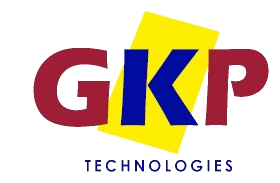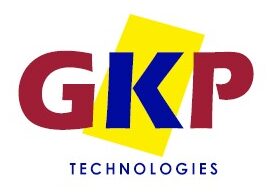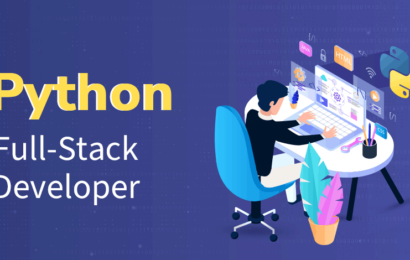
- Instructor: GKP
- Students: 2
- Duration: 60 hours
This 60-hour course is designed to equip participants with the skills and knowledge required to become a proficient Full Stack Java Developer. The course covers both front-end and back-end development, focusing on core Java programming, web development using HTML/CSS/JavaScript, and building robust server-side applications using Java frameworks like Spring and Hibernate. Participants will also learn to work with databases, version control systems, and deploy applications.
Key Learning Outcomes:
- Develop full-stack applications using Java.
- Gain proficiency in front-end technologies like HTML, CSS, and JavaScript.
- Build robust back-end services with Spring Boot.
- Manage databases and integrate them with Java applications.
Syllabus:
-
-
Introduction to Full Stack Development
- Overview of Full Stack Development: Understanding the role of a Full Stack Developer, Overview of the development process, Tools and technologies used in full stack development.
- Introduction to Java Programming: History and evolution of Java, Setting up the development environment (JDK, IDE), Basic syntax, Data types, and control structures in Java.
Core Java Fundamentals
- Object-Oriented Programming (OOP) in Java: Principles of OOP (Encapsulation, Inheritance, Polymorphism, Abstraction), Classes and Objects, Constructors, Methods, and Access Modifiers.
- Exception Handling and File I/O: Introduction to exceptions, try-catch-finally, Creating custom exceptions, Working with files (FileReader, FileWriter, BufferedReader, BufferedWriter).
- Collections Framework: Overview of Java Collections, List, Set, Map interfaces, Working with ArrayList, LinkedList, HashMap, TreeMap, Iterators, and Streams API.
- Java Multithreading: Introduction to multithreading, Creating threads in Java (Thread class, Runnable interface), Synchronization, and concurrency utilities.
Introduction to Front-End Development
- HTML and CSS: Structure of an HTML document, HTML5 features, Styling with CSS3, Responsive design principles, Introduction to CSS frameworks (e.g., Bootstrap).
- JavaScript and DOM Manipulation: Basics of JavaScript (Variables, Operators, Control Structures), DOM manipulation, Event handling, Introduction to ES6+ features (let/const, arrow functions, promises).
- Front-End Frameworks: Introduction to modern JavaScript frameworks (React or Angular), Components, Props, State management, Routing, and handling forms.
Building Web Applications with Java
- Introduction to Web Applications: Understanding web architecture, Introduction to HTTP and RESTful services, Role of server-side programming.
- Java Servlets and JSP: Introduction to Servlets, Servlet lifecycle, Handling HTTP requests and responses, Introduction to JavaServer Pages (JSP), Expression Language, JSTL.
- MVC Architecture: Understanding the Model-View-Controller (MVC) pattern, Implementing MVC with Java, Integrating Servlets and JSP.
Spring Framework
- Introduction to Spring: Overview of the Spring Framework, Inversion of Control (IoC) and Dependency Injection (DI), Setting up a Spring project.
- Spring MVC: Building web applications with Spring MVC, Configuring DispatcherServlet, Creating Controllers, Views, and Models, Handling forms in Spring.
- Spring Boot: Introduction to Spring Boot, Creating Spring Boot applications, Auto-configuration, Spring Boot starters, Creating RESTful APIs with Spring Boot.
Database Management and ORM
- Introduction to Databases: Basics of relational databases, SQL fundamentals (DDL, DML, Joins, Aggregations), Introduction to MySQL/PostgreSQL.
- JDBC (Java Database Connectivity): Connecting to databases using JDBC, Executing SQL queries, Handling transactions, and managing connections.
- Hibernate and JPA: Introduction to Object-Relational Mapping (ORM), Setting up Hibernate in a Java project, Hibernate CRUD operations, Hibernate annotations, JPA (Java Persistence API) overview, Relationships (One-to-One, One-to-Many, Many-to-Many).
RESTful Web Services
- Building RESTful Services with Spring: Introduction to REST, RESTful principles, Building RESTful APIs with Spring Boot, Handling HTTP methods (GET, POST, PUT, DELETE), Content negotiation, Exception handling in REST services.
- Securing RESTful Services: Introduction to Spring Security, Implementing authentication and authorization, JWT (JSON Web Tokens) for secure APIs, Role-based access control.
Testing and Debugging
- Unit Testing with JUnit: Introduction to testing in Java, Writing unit tests with JUnit, Test-driven development (TDD) principles, Mocking with Mockito.
- Integration Testing: Writing integration tests for web applications, Testing RESTful APIs, Testing database interactions.
- Debugging Techniques: Common debugging practices, Using IDE tools for debugging, Analyzing and fixing common errors in Java applications.
Version Control and Collaboration
- Introduction to Git: Understanding version control systems, Setting up Git, Basic Git commands (clone, commit, push, pull, branch).
- Collaboration with GitHub/GitLab: Working with remote repositories, Branching and merging strategies, Pull requests and code reviews, Git workflows in team environments.
Deployment and Cloud
- Introduction to DevOps and CI/CD: Overview of Continuous Integration and Continuous Deployment, Setting up CI/CD pipelines with tools like Jenkins or GitHub Actions.
- Deploying Java Applications: Introduction to deployment, Deploying Java applications on servers (Tomcat, Jetty), Introduction to containerization with Docker.
- Cloud Deployment: Overview of cloud platforms (AWS, Azure, Google Cloud), Deploying Java applications to the cloud, Introduction to cloud-native Java applications.
Final Project
- Capstone Project: Designing and developing a full-stack Java application, Integrating front-end and back-end, Implementing database interactions, Deploying the application to a live server or cloud platform, Presenting the project.
-






